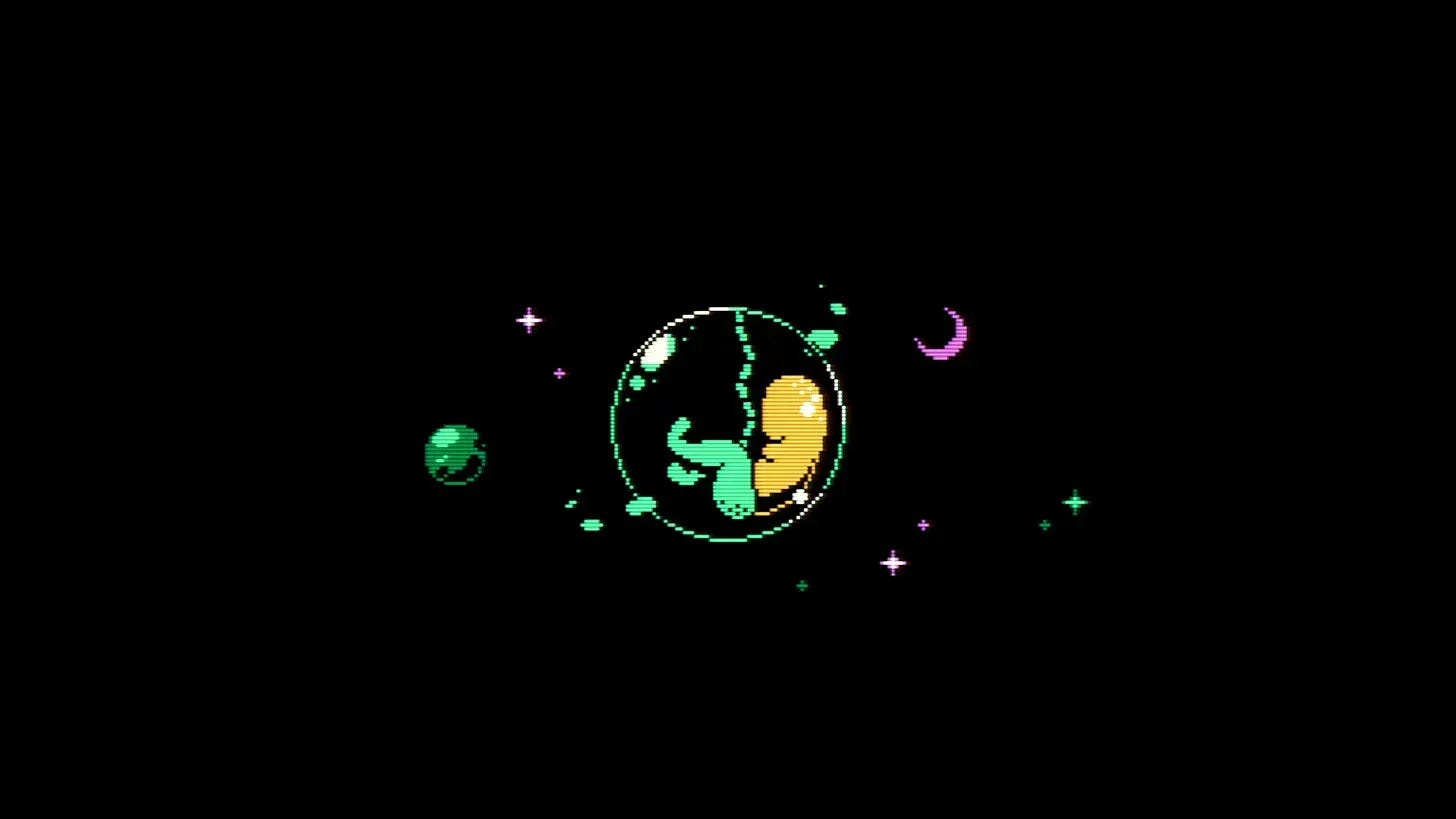‘One more go’
A turn of phrase I have an extremely haphazard relationship with. I usually hate having to repeat sections of a game, especially when on multiple occasions I've been so close to the next checkpoint.
But with this next entry in UFO 50 I have to make an exception, because Mooncat is so incredible an execution of an idea it's hard not to want to keep playing.
On first glance Mooncat seems like a troll. A Bennett Foddy-esque rumination on spatial coherence and perseverance and the inherent slapstick of not really having a handle on how to navigate a game world without the comforts of a more conventional mechanical paradigm.
‘What if Mario had fucked up controls?’
It's hard to really put into words what's so off-putting about the control scheme here. You have two clusters of buttons, one cluster moves you right, the other left, and then all other actions have to be input with a combination of both.
You want to jump right? Hold right and then press left. You want to ground-pound? Hold another button while in mid air, but make sure you're on the right sort of platform otherwise you might fall through the floor!
There's also a slide move that I managed to pull off exactly once and have never been able to replicate since.
The intangibility of this control scheme, it's precision and yet seeming impreciseness, is going to be very off putting for a lot of folk. Certainly when I first encountered it I was worried. But there are three things you need to know about Mooncat that I think are the key to reconciling with how genuinely brilliant it really is:
You get so used to the control scheme over time that it becomes intuitive to the point that you wonder why no one else is using it
Every new ‘room’ is a new checkpoint, so you're never too far from progress nor set back that much in failure.
Everything resets when you close the game. So you kind of have to keep playing.
That last point can obviously be mitigated by keeping the game in sleep mode instead of shutting it down, but I feel like that's against the spirit of the thing, and I would argue that you directly benefit from having to start from scratch. Not only is it a means of showcasing mastery, clearing screens in single runs where they previously gave you so much grief, but also this is a game with secret levels.
Secret warps to new areas are hidden throughout, requiring feats of dexterity in order to gain access to. It's a brilliant reward for those fastidious players who bring more of themselves to the experience of play. Not only a treat for the sickos, but also a tasty respite for anyone who's currently bashing their head against a particular area.
Much of Mooncat’s golden path is linear, you need to get past certain obstacles to progress, and some of those obstacles can seem rage inducingly impossible to overcome at first. These alternate excursions somehow fit perfectly into that sequence. Inimitably discoverable to anyone with a keen eye, but hidden away enough that they don’t distract from this critical track.
Mario, with a fucked up control scheme, it turns out is an ingenious idea, one made all the better for just how well it understands that it's level design, the enemy placement AND your mastery of abilities need to work in harmony. Because the most fascinating thing about Mooncat for me personally is that it's a game that's all about momentum.
The key to unlocking mastery over its frictional, wonky controls and biting difficulty is to understand that you just need to keep moving. Everything exists like clockwork, and eventually you get a feel for which obstacles need to be considered, and which can be ignored.
Some enemies will scoot over you, barely missing by a fraction of a pixel, others will murk you in an instant. Some even exist as platforms to allow you to get to higher elevations. The push-pull of this design is built around a sense of momentum that at times genuinely makes you feel like you are playing an auto-scroller.
It is for this reason that, although there are very obvious aesthetic nods to Barbuta throughout, the game from this collection that I’m reminded of the most is Ninpek.
I think this is the most uniquely brilliant thing I've played from this collection yet. I’m completely in love with it.





